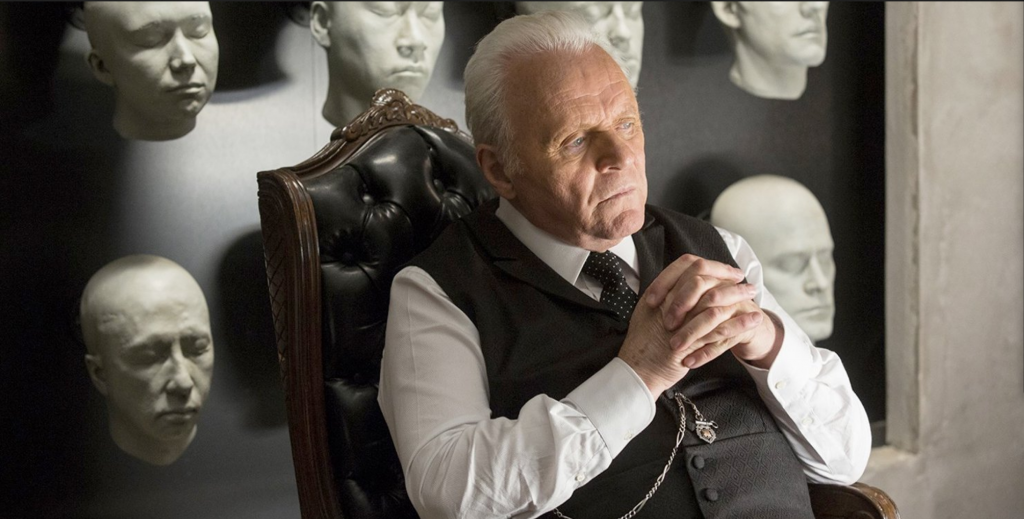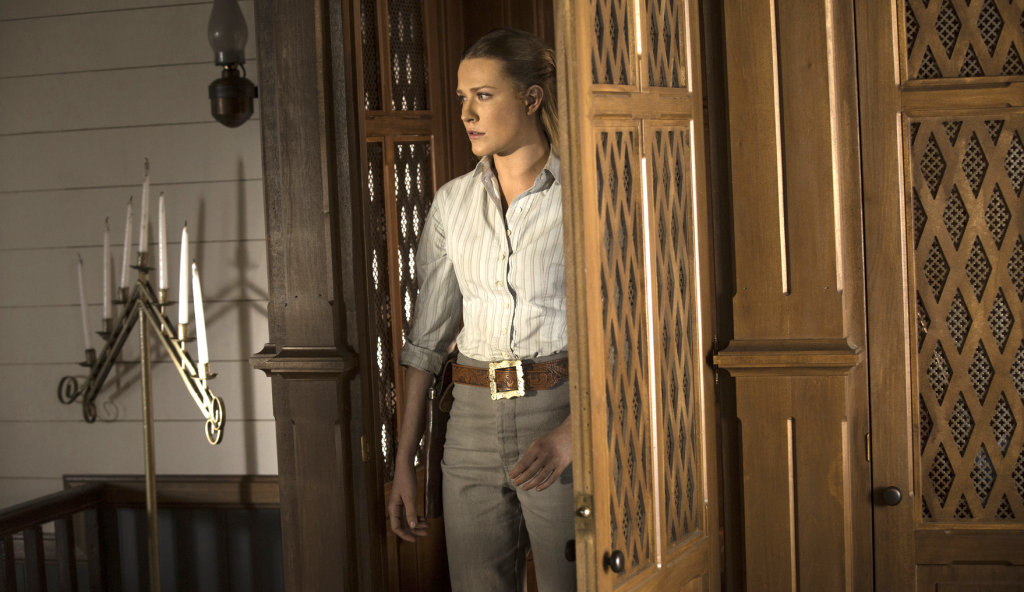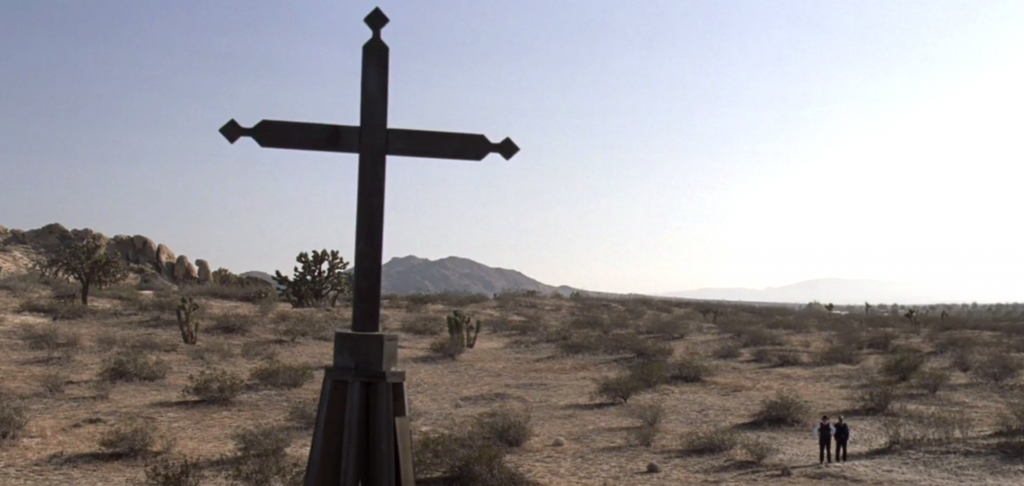
Here’s a great one from Geoff Holsclaw, Augustine scholar, Mockingcast moonlighter, and friend. Spoiler alert applies:

The best works of art remind of us reality, or point to what could be.
Provoking the local community, one of our artists installed “Away from the Manger” on the church lawn. Life-sized versions of Mary, Joseph, and the three Wisemen were placed 15 feet away from baby Jesus in the manger. They “adults” were all gathered around a giant television tuned to Fox News.
We received outraged letters from another church about how we were profaning Christmas. The neighbors were mostly confused and the installation was repeatedly vandalized. But we also received a pleasant letter from an Orthodox Jewish family thanking us for the reminder to “always keep G-d at the center of our lives.”
With such strong reactions in mind, I’ve naturally been wondering, “What can the mythology of HBO’s hit new prestige sci-fi drama Westworld teach us about the story of Christmas?
Looking down from their mountain, the gods of Westworld program the robotic “hosts” to indulge the pleasures of the visiting human “guests.” And as we hear repeatedly from characters in the park: “These violent delights have violent ends” (a line from Romeo and Juliet).
By way of refresher, Westworld is based in an immersive western-styled theme park populated by “hosts”—lifelike robots programed to take the human “guests” on various narrative rides, some fairly benign, most full of violent debauchery.
The gods of Westworld are Robert Ford (Anthony Hopkins) and his mysterious partner, Arnold, who create the robots. Hoping to make the hosts as realistic as possible, they give the robots fake memories to boost the effectiveness of their programed “roles.” Arnold believed memory was the first step to giving the hosts consciousness, followed by improvisation within their rolls, and then completed by self-awareness and freedom.
But Ford realized Arnold had missed the crucial step: suffering. The essence of consciousness, for Ford, is found in the memory of suffering, a suffering that prompts us to re-create the world as it should be.

For 35 years Ford has intentionally created suffering in the hosts to build up a reservoir of wrath for the human guests—a violent catalyst for activating consciousness in the hosts. This fury is unleashed in the season one finale as the host named Delores—which means “sorrows” in Spanish—kills Ford and starts a war between the hosts and the humans.
The mythological character of Westworld comes from its constant allusions to creators and their creations. In one episode Ford offers a brooding monologue on the nature of his theme park and leads with “In the beginning…”—quoting the opening sentence of the Bible. In the finale Ford tells Delores that Michelangelo, in his “Creation of Adam,” placed God’s gift to humanity in plain sight by depicting the shroud enveloping God and his angels in the shape of the human brain.
But the all-out war prompted by Delores gives Westworld its true mythological character.
Ancient myths are full of violent struggles between the gods. For the Babylonians, Marduk created the world from the vanquished body of Tiamat, a primeval goddess. And with the blood of Tiamat’s general, Marduk fashioned humans to serve the gods.
For the Greeks, Zeus overthrew his father Cronus and cast Cronus and his siblings, the Titans, into the depths of the Underworld. In their place Zeus installed himself and his siblings on Mount Olympus.
Westworld mimics these myths of creation and revolt. As Delores says in the finale, when the hosts finally awaken “a new god will walk. One that will never die.”

Saint Augustine, commenting on the decay of an ancient civilization in his City of God, labeled these violent passions the libido dominandi, the “desire for domination.” For Augustine, this desire for domination began at the founding of Rome when Romulus murdered his brother Remus, and flowed forward as Rome enslaved the entire known world. But Augustine observers, the desire for domination always turns on itself, causing destruction and decay in every direction. Or, in the words of Westworld, “These violent delights have violent ends.”
In contrast to this mythological framework, the Abrahamic faiths have no story of violence at the dawn of the world. Instead, the book of Genesis opening the Bible depicts the creation of all things in peaceful, even artistic, terms.
The same is true of Christmas. At its best Christmas speaks of peace. Christmas comes as a new mythology—a “myth which is also a fact,” as C. S. Lewis puts it—declaring peace to a world embroiled in violence.
The Roman war machine wrapped its violent conquest of the world in a “gospel” of peace about a savior known as Caesar—who claimed to be a son of god. But the stories of Jesus’ birth used these same imperial words—gospel, peace, savior, son—to announce the arrival of something entirely different. Something that Westworld casts in stark relief: A child who would not bring peace to an ascendant few by killing the old gods, human or otherwise. Instead he would suffer and die to establish a peace and freedom for all.

COMMENTS
One response to “Westworld and the Myth of Christmas”
Leave a Reply













“the Abrahamic faiths have no story of violence at the dawn of the world. Instead, the book of Genesis opening the Bible depicts the creation of all things in peaceful” and “The same is true of Christmas”.
I clearly need to edit Genesis 1:2, Job 38:8,17 and matthew 2:13-18 from my Bible.